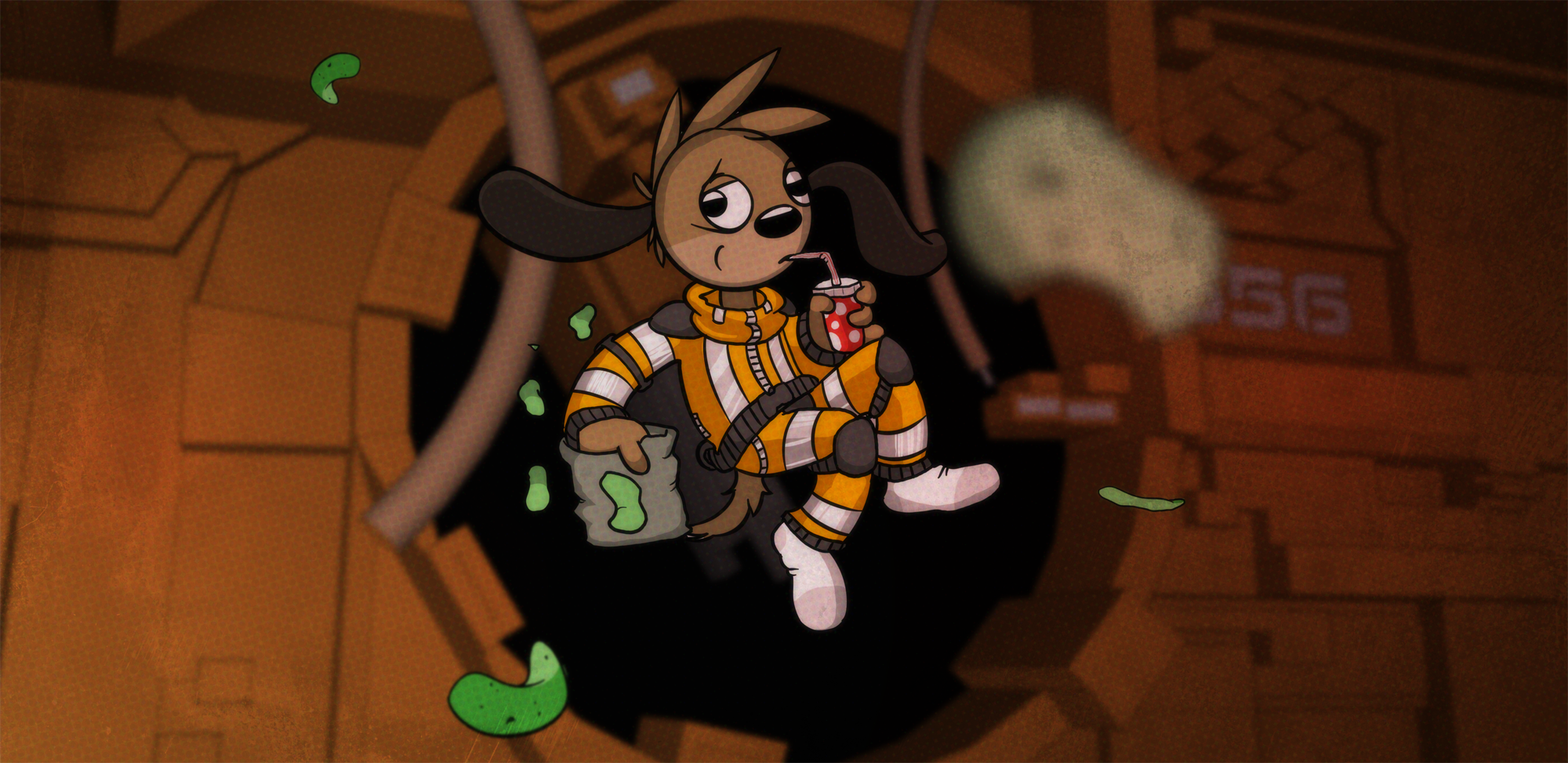By a number of measures, Thom is discouraged from eating junkfood.
It’s not that the ship’s computer, nor REZQ themselves, have Thom’s health at heart. After all, it’s never tried to stop him sucking down amphetamine-laced instant coffee or eating “cereal” bars consisting primarily of petrochemical gum fillers. It’s more about short-term productivity, and micromanagement of organic resource to maximise that productivity. While consumption of SPEED COFFEE might cause a serious crash in a couple of days’ time, or lead to more serious health problems, there is the opportunity to monitor and mitigate that in advance–the ship’s computer might request cover from other vessels, or, more often, impose additional dietary and stimulant controls to smooth the comedown and keep a baseline of activity. If a longer-term replacement of an organic resource is needed–if the computer determines that they are at a high risk of imminent death–then all knowable measures can be undertaken to ensure that service is not disrupted for any longer than strictly necessary.
The trouble with unsanctioned carbohydrates, sugars, and other unmapped macro and micronutrients, is that (as far as the computer believes, at least) they cause spikes and craters in productivity that, while not impossible for the vascometrics system to measure and predict, do not build in much time to react. The sluggishness from carb consumption (whether real, imagined, or a side-effect of the relative contentedness from feeling sated) is not desirable when trying to get every useful working second out of an organic resource.
While vascometrics can provide a dizzying level of granularity to information about a body’s current state and function, and while this incredibly low-level surveillance can reveal a seemingly fractal level of detail, the more tightly these systems try to grasp a truth about the body, the more the fullness of that truth slips away. That is to say that, owing to inbuilt flaws in the system–forecasting models skewed by corrupt research, coding built upon a palimpsest of unexamined biases, the pressure to round off numbers and to flat-phase in favour of a desired/idealised efficiency profile–the accuracy of vascometric measurement and organic resource management is far from guaranteed.
This is a long-winded way of saying that sometimes, despite all potential consequences, Thom knows he can get away with eating algae chips and drinking fizzy fructose, even if the computer doesn’t. And if he has to hide in a particularly derelict part of the ship with poor sensor coverage to do it, then he will.
